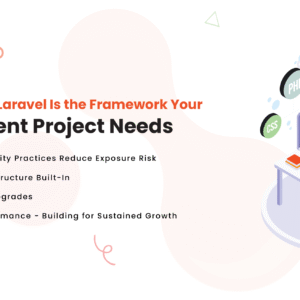When building a Drupal-powered website, choosing the right hosting provider is one of the most important decisions you’ll make. The wrong host can slow down your website, compromise security, and limit your ability to grow. On the other hand, the right hosting solution will boost performance, improve security, and support long-term scalability.
In 2025, users expect fast, secure, and seamless online experiences—and so do search engines. That’s why Drupal website optimization starts with the hosting provider. In this guide, we’ll walk you through what to look for in a Drupal host and how the right infrastructure directly contributes to the performance and success of your website.
Why Hosting Matters for Drupal
Drupal is a powerful and flexible CMS built for complex websites. But with great power comes great responsibility: its robust features can also be resource-intensive if not supported by a properly optimized server environment.
Drupal website optimization depends heavily on your hosting environment. Everything from load times and uptime to backend performance and caching capabilities hinges on whether your hosting provider is Drupal-aware and performance-focused.
1. Look for Drupal-Specific Hosting Expertise
Not all hosting providers are created equal. Just because a company offers generic web hosting doesn’t mean it can support a high-performance Drupal site.
Here’s why Drupal-specific expertise matters:
-
Drupal is unique. Its module system, caching mechanisms, and configuration architecture require fine-tuned server setups.
-
Security standards are higher. Drupal powers many government and enterprise websites, which demand top-notch security.
-
Optimization is ongoing. Drupal evolves, and your host should keep up with the latest performance best practices.
When evaluating hosts, ask if they offer:
-
Pre-configured Drupal environments
-
Teams with Drupal-certified support engineers
-
One-click Drupal installations and updates
2. Prioritize Performance Optimization Features
When it comes to Drupal website optimization, your hosting provider should offer features that directly impact page speed and load handling. These include:
✅ SSD or NVMe Storage
Faster disk access improves database and file load times—crucial for dynamic Drupal content.
✅ Optimized Web Server Stack
Look for hosts that use a high-performance stack like Nginx + PHP-FPM + MariaDB/MySQL. This stack works exceptionally well with Drupal’s architecture.
✅ Built-in Caching Solutions
Drupal’s performance is greatly enhanced with caching. Ensure your host supports:
-
Varnish Cache for HTTP-level caching
-
Redis or Memcached for backend object caching
-
OPcache for PHP script caching
These tools dramatically reduce server response times.
3. Evaluate Scalability and Resource Allocation
A good Drupal website often grows in size and traffic. Whether you’re adding new features, publishing high-volume content, or running marketing campaigns, your hosting environment should be ready to scale with you.
Check for:
-
Scalable resource allocation (CPU, RAM, bandwidth)
-
Autoscaling during traffic surges
-
Support for multisite deployments (Drupal can host multiple sites from one core)
Scalability is a key part of long-term Drupal website optimization, especially for growing businesses and agencies managing multiple projects.
4. Choose Hosting That Emphasizes Security
Drupal has a strong reputation for security, but that doesn’t absolve your host from responsibility. Security breaches are often caused by poor hosting configurations, outdated software, or lack of proactive monitoring.
Here’s what your host should include:
-
Free SSL Certificates
-
Daily automated backups
-
Malware scanning and firewalls
-
DDoS protection
-
SSH and SFTP access
-
Server-level hardening for Drupal
If your host can’t guarantee a secure environment for Drupal, it’s time to look elsewhere.
5. Assess Support Availability and Quality
Support is often overlooked until something goes wrong. With a CMS like Drupal, having knowledgeable, 24/7 technical support can make or break your site.
Look for:
-
24/7 live chat or phone support
-
Drupal-certified technicians
-
Proactive monitoring and support alerts
-
Ticket-based escalation systems
Support teams that understand Drupal’s inner workings can help you resolve issues faster and keep your site fully optimized.
6. Check Developer-Friendly Tools and Integrations
If your team includes developers, or if you’re working with an agency, you’ll want hosting that supports a modern development workflow.
Ideal tools and features include:
-
SSH access for command-line control
-
Drush and Composer support
-
Git version control
-
Staging environments for testing before deployment
-
CI/CD integration
These features streamline development, testing, and deployment, which are all critical for maintaining a well-optimized Drupal website.
7. Compare Pricing Against Value
While it’s tempting to go for the cheapest hosting option, performance, support, and reliability should come first. Drupal websites require more robust hosting than basic shared hosting can provide.
Instead of comparing dollar-to-dollar pricing, assess:
-
What’s included (backups, caching, SSL, support)
-
Uptime guarantees
-
Upgrade paths as your site grows
-
Hidden fees for storage, bandwidth, or support
Paying slightly more for Drupal website optimization today can save you thousands in lost traffic or downtime tomorrow.
Final Thoughts
Choosing a hosting provider for your Drupal website isn’t just a technical decision—it’s a strategic one. The right hosting partner will do more than keep your website online. They will actively contribute to its performance, security, and long-term success.
If Drupal website optimization is a priority (and it should be), then invest in a hosting provider that understands the platform, offers performance-focused infrastructure, and supports you with expert guidance.
Your website is only as strong as the server it runs on—make sure it’s built on a foundation optimized for Drupal’s full potential.







